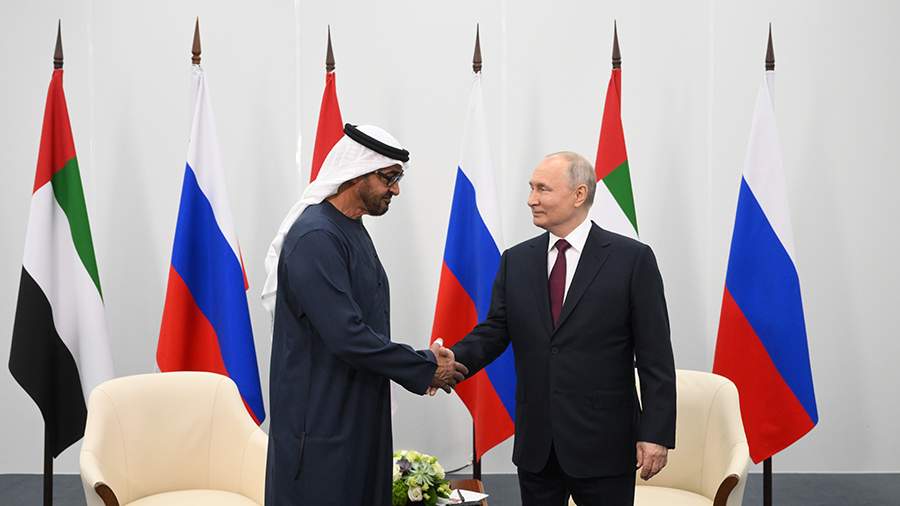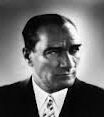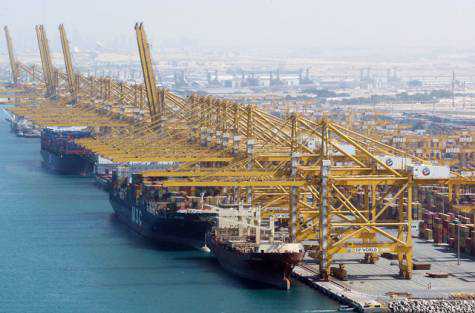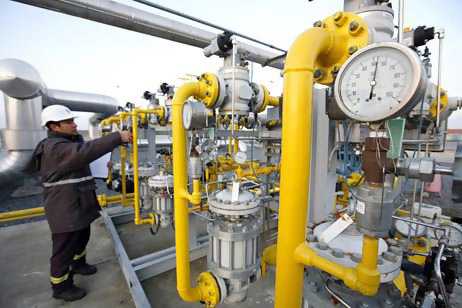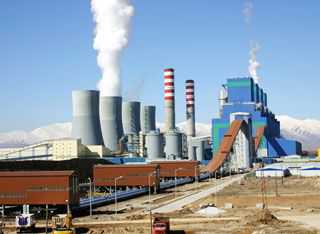The burning questions of these times in Turkey

What to do? A presidential election, the first of its kind, is soon coming to Turkey. There are three candidates. One is the prime minister, about whom the less said the better. Another is Selahattin Demirtaş, the Kurdish parliamentary representative, affiliated with the PKK, a separatist, armed terrorist organization. The third is a life-long, Islamist now tricked out as a secularist. He, Ekmelledin İhsanoğlu, characterized himself politically as a loaf of bread. (“Ekmek için Ekmelledin”) While perhaps appropriate, it was not meant to be funny.
Think of it this way, the presidential race is a Turkish-American trifecta. Usually one must pick the exact order of finish, 1-2-3, to win. But not in Turkey’s three-horse run-for-Çankaya. America wins regardless. Erdoğan, who America tried to dump last December, is the odds-on favorite. Demirtaş is the long-shot Kurdish candidate to uphold Joe Biden’s pipedream of a Kurdistan from his days on the Senate Foreign Relations Committee. And İhsanoğlu, America’s new boy, a smiling loaf of plain, white bread who will make a race of it for awhile. He will be run into the ground by the Erdoğan machine and opposition party voter apathy (and anger). Unless America pushes some magic election buttons at the finish line.
Nevertheless, all three America-bred candidates will win. Erdoğan gets his last gasp of glory until America figures a way to excuse him permanently. İhsanoğlu, entering his first race, is not likely to win (break his maiden) in this one. But he gains experience and will earn a place in America’s stable in case Erdoğan breaks down in a future outing. And Demirtaş gains credibility and track-time as an American entry for the next political operation in Kurdistan. So you see, America wins! The American-bred candidates win! And as usual, those swindled into believing that the presidential race matters, that is, the Turkish people, lose, again. Such is life at Imperial Downs, the American home of rigged elections, puppet shows and broken dreams.
Such are the dire electoral conditions in Turkey today. After a decade of Islamic fascist rule, and opposition party collaboration, its secular democracy is in ruins. This hapless trio of candidates puts the final nail in the coffin of Atatürk’s secular, anti-imperialist republic. This slate was selected by the political parties seated in parliament not the people. The domineering Erdoğan, finishing his third and final term, wants to move into the presidential chair. He will also change the power structure so that his steel-handed, brutish reign will continue. He should win easily. The Kurdish candidate is there to keep his separatist constituency happily dreaming of autonomy and oil revenues. The third candidate, the political opposition’s answer to the religious fascist government, is Ekmelledin İhsanoğlu. He is running because… because… well, because… perhaps because he was born and educated in Egypt, is a career Islamist, has been mute for years about the continuing dangers of shariah being imposed on secular Turkey and has an unconvincing commitment to the principles of Mustafa Kemal Atatürk. All this irrelevance somehow fused into a bewildering symbol of a loaf of bread. And, accordingly, his equally bewildering sponsors concluded that he will surely defeat the undefeated and undefeatable Erdoğan. This so-called thinking is called the “Alice-in-Nightmareland Syndrome.”
So how did a loaf of bread come to represent the adherents of Mustafa Kemal Atatürk? The two major opposition parties, cooperating for the first time, swept the countryside seeking a suitable secular, democratic, Atatürk-loving candidate to face the imperialist-puppet Erdoğan. Amazingly, they could find none. Why? Because the opposition parties are deficient in their knowledge of secularity, democracy and Mustafa Kemal Atatürk. The truth is that they have both collaborated in the destruction of Atatürk’s republic. They have enabled the religious fascists to come to power and remain in power. One need not be a genius to see this. Being marginally alive in Turkey is enough. And Kemal Kiliçdaroğlu’s secretive selection, even to his own party members, of an Islamist bread loaf is first-hand evidence of his treachery.
IF ONLY…
So what is to be done? Oh, if only Mustafa Kemal Atatürk were here to save us. He’d know what to do. Yes, he would. Falih Rıfkı Atay, Atatürk’s close friend, biographer and confidant, told us in 1968. “What would Atatürk do if he were alive today? Shall I tell you? He would curse the lot of us.”
On Sunday 13 July 2014, Ümit Zileli wrote a compelling column in Aydınlık entitled “To Think Like Atatürk” (Mustafa Kemal gibi düşünmek!). It is well worth reading. Briefly put, Zileli says it is now fight time! I agree. So fight. Here’s why.
First, the coming election. American self-interest, ignorance and criminal negligence prevails. And their puppet government loves to see elections. It validates their crimes. Winning recent local elections allowed Erdoğan to feel vindicated of massive theft and bribery allegations. It allows them to lie to their ignorant constituency, shower them with bribes and become more beloved. And America claps hands and showers their pet fascists with praise and good wishes.
Remember the elation a few years ago when the Iraqis “embraced democracy” and voted for candidates they didn’t even know, a puppet slate installed by the occupying power? Suddenly, thanks to America’s brave men and women, Iraq had become democratic. All it took was purple ink for the index fingers. Some democracy. A deception. Examine Iraq today.
The coming election in Turkey is another deception. It is, as Atatürk said in earlier, similar times, “the work emanating from the brains of traitors.” Turkey is now a totalitarian, de facto one-party police state. And the Turkish people are worrying about whether to vote in a phony election? Vote for what? To be a loaf of bread or not to be a loaf of bread? Hardly a burning question, it’s an empty and insulting exercise.
DEMOCRATIC ELECTIONS REQUIRE A DEMOCRACY
Democracy requires a sovereign nation not controlled by outside imperialist powers and its agents, be it CIA or, as the prime minister claims, Fethullah Gülen Gang operators. It would also be nice to not have a criminal government, one that lies, cheats, steals, maims, gasses and murders its own people. Citizens of a democracy have certain specific human rights not to be abused. Vibrant, aggressive, honest opposition parties are also essential. The Turkish nation lacks sovereignty, its borders eroded by its own government. Its destiny is controlled by the needs of foreign powers as implemented by its puppet government. By the prime minister’s own admission, a foreign gang, CIA-supported, operated with impunity to deceitfully destroy the nation’s security forces, that is, the Turkish Army. This same government conspires with various terrorist groups to overthrow the governments of neighboring countries, acting under orders from imperialist powers. It is clear that Turkish democracy is a deception and dysfunctional.
Turkish political representation is a deception and dysfunctional. The party leaders select the candidates that we, the people, vote for. The party that professes to be “revolutionary,” the CHP, as of now the largest opposition party, failed miserably to support the Gezi Park movement. It perceived the movement, mostly consisting of young people, to be against the party’s interests. For once the party was correct. The CHP is primarily a fossilized bunch of status quo parliamentary seat-warmers, completely unrepresentative of Turkish young people. Hence came Ekmelledin İhsanoğlu to yet again prove that point. How insulting is CHP to the youth of Turkey!
The Turkish judiciary system is a deception and dysfunctional. Enormous fascist-style justice buildings everywhere, justice nowhere. The courts are in the hands of the ruling party fascists.
The Turkish media slavishly serves the interests of the political ruling party. Freedom of the press is nonexistent. The wolf-pack media fails to understand its democratic rights and responsibilities.
The Turkish people lack constitutionally guaranteed rights to freely assemble and protest. They live under the constant fear of reprisals, both physical and judicial.
The Turkish police, aided by organized street thugs, assault the Turkish population with fiendish brutality. This is applauded by the prime minister. ISIS (Islamic State of Iraq and Syria) and other government-supported terrorists have a free pass into and out of Turkey. There is no personal security in the Turkish police state.
Democracy is dead in Turkey. If you vote, you will be voting for a rotting corpse.
KNOW YOUR ENEMY
The enemy is the system imposed on the Turkish people by insiders and outsiders, the same people Atatürk identified in Nutuk (The Great Speech) over one hundred years ago. They are the “fools and traitors” of the government who “identify their personal interests with the enemy’s political goals.” The enemy is clearly identified. It is the state and the government. It is the treacherous opposition parties. It is America, its ambassadors, its agents and its CIA and NSA operators, here and abroad. The enemy is imperialism and its operators. We all know this. There are no longer any mysteries.
Examine what passes for Turkish foreign policy and weep for the nation. “Peace at home peace in the world?” Atatürk’s motto and Atatürk’s republic are in the hands of criminals and collaborators. And the same tired experts fill the already polluted airwaves with their stale ideas about the responsibility of citizens to vote. Citizens of what? A puppet state of America? Vote for whom? Another imperialistic puppet? Vote for what? More of the same? Or worse?
GETTING STARTED
First, remember that the true objective is often not the field in plain sight but the sea beyond the mountains.
Second, say NO to this false election. If you feel you must vote, carry a pen with you and write the name, MUSTAFA KEMAL ATATÜRK, on your ballot. Sure, it invalidates your vote. But the election itself is invalid.
Third, say NO to these fraudulent and deceitful opposition parties. Surely they will collapse after this fiasco. This is good news and a first step towards solution.
Fourth, say NO to this state that so severely mistreats and insults over half the nation.
Fifth, immediately prepare to fight to save Atatürk’s republic, that is, prepare the field of engagement. Please note that there should be no violence nor will it be necessary to engage the enemy, that is, the imperialist powers and their agents, in any physical manner. We, like Atatürk, should choose where and how we fight.
ACTION PLAN
No religious designations on public documents, particularly identification cards. Immediately demonstrate to the enemy that religious designations will no longer be used for political purposes. Accordingly, and in conformance with European Union standards, immediately apply to have the religious designation removed from all Turkish ID cards. This is easily done. One visit to the population (Nüfus) office starts the process. The objective? To neutralize the enemy’s ability to divide Turkey into religious sects. To tell the wider world that the removal of religious designations by millions of Turks is a profound and dramatic step in the people’s battle against internal religious fascism and external imperialist ambitions. Suddenly, Turkey goes from being 99% Islamic in the eyes of the CIA to something dramatically less. Thus, notice is served that we want no part in a government or its supportive agencies and collaborators that use religion to support its own criminal behavior or the criminal behavior of foreign powers.
No military service in support of imperialism or sectarian war crimes.Immediately file a petition with the European Commission of Human Rights that claims conscientious objection (C.O.) status for all young people of age for conscription into military service. The fact that conscientious objection is not legally recognized in Turkey is irrelevant to our purpose. Resistance to the imperialist powers and their puppets will be on all fronts and at all depths. A government that conspires with the Gülen Gang to destroy the Turkish military and then claims that a parallel state, that is, the same Gülen Gang, did it alone is not competent to claim the lives of Turkish young people to serve its dark designs. A government that allows, either wittingly or unwittingly, the catastrophic destruction of the state’s primary security force is either treasonous or incompetent. In either case, Turkish youth should not be cannon fodder for use by a government that has proven to be an enemy of the Turkish people.
Boycott all mainstream propagandizing media. Avoid viewing all television programs and films that support the enemy. Avoid purchasing newspapers or journals that support the enemy.
Boycott enemy products. Boycott all American product. Its role in the destruction of Turkish democracy and security is profound. Boycott the products of all manufacturers and distributors that deny advertising to media opposed to the government. This is prejudicial and undemocratic marketing behavior, driven solely to gain political favor. It has nothing to do with economics and is purely punitive.
Do not engage in mass public protest. Are we angry? Yes! Are we at war? Yes! Are we stupid? No. So we don’t go into the streets. There is a better way. Let the enemy buy more TOMA monsters from that treacherous Turkish enterprise, Nurol Holding. And let imperialist America and cowardly Brazil sell more and more pepper gas to the Turkish police. Let it all rot in their bloody hands.
Watch the political opposition parties collapse. Revealed by this phony presidential election to be non-representative and fraudulent to the people it claims to represent, the opposition parties will again try to re-invent themselves. This, too, will be a disaster. They have proven, once again, that they no longer represent a huge segment of the population, that is, the young people. And for that failure they will proceed, at last, to destroy themselves. From this collapse comes hope.
Watch a new system emerge. The world is heading there whether the current ruling class likes it or not. Representational democracy represents one thing, money. Wealth is politics. Poverty, local and global, can never be solved by a political system that is a slave of business. In a period of economic crisis, that is, 2008 to today, both the number and net worth of billionaires rose by almost 50%. At whose expense? Everyone else, in particular the poor. People are driven from their land. Resources are controlled by a small group of political and corporate elite. Politics is not representative of real people. How many people determined that Ekmelledin İhsanoğlu would be the candidate to represent the interests of those supporting the secular, democratic republic founded by Atatürk? One. Kemal Kılıçdaroğlu. He knew best. A new system must come. But first the old one must self-destruct.
Join hands.Who knows when this will happen? But we see the cracks appearing everywhere. The overwhelming arrogance that presented the Turkish people with a rigged, phony election should be the inciting incident that leads on to victory over the imperial powers now besieging Turkey. And remember, the enemy remains without a clue about the origin of and reasons for the Gezi Park movement, as do the opposition parties. A new generation of Turks must lead. Help them!
CONCLUSION
We are passing from the sphere of that historical time of Atatürk’s revolution against the forces of backwardness and imperialism. It’s youthful vigor while he lived gave great hope to the people. But it’s long-term, continuing debilitation after his death left the revolution incomplete and vulnerable. Dangerous flirtations with imperialist powers led to disastrous military coups. Hence now the current state of siege by imperial powers, aided by a treasonous government that has destroyed most aspects of secular democracy. This counter revolution will culminate with the rise to full presidential power of an obvious enemy of secular democracy, aided by the naïve treachery of the incompetent political opposition.
All of the democratic institutions of government have been spoiled by the religious-fascist meddling of the ruling party. The Turkish Army appears lost. Its generals bow their heads to political hacks. There are no longer secure borders. Vast regions in the east operate independently and with impunity. The government actively supports terrorist organizations inside and outside Turkey. The Turkish government lacks independent sovereignty. Foreign imperialist powers control the destiny of the Turkish people. All seems lost.
Still, there is a chance that this catastrophe will lead to the consolidation of a massive source of intelligent, patriotic political power long-ignored and long-suppressed. In a word, the relentless power of YOUTH. Impatient, honest, courageous, vigorous, this is the genuine vanguard of the fight to save secular Turkey. It is the future. The full flower of young manhood and young womanhood will sweep aside the political debris that so contaminated the legacy of Mustafa Kemal Atatürk. We have seen the young people in action. And they were splendid.
Now is the time to show again how a great people, whose national course was considered finished, regained its independence. Now is the time to show how it recreated a national and modern State founded on the latest results of science. Now is the time to rid the land of imperialists and their agents.
Now is the time to engage the enemy on all fronts, domestic and foreign.
Enough is enough! Now is the time to fight!
Let it begin!
Cem Ryan
Istanbul
18 July 2014
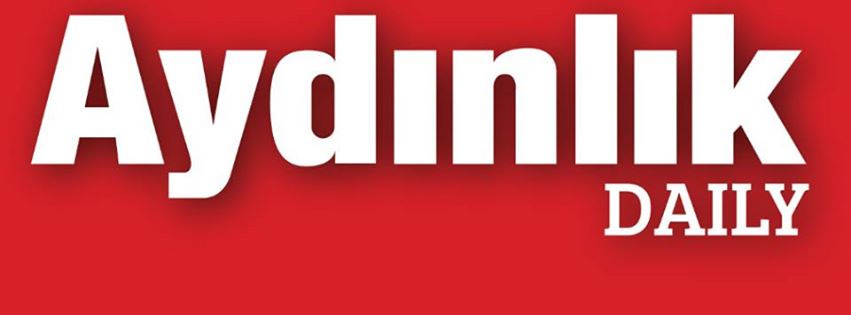
REFERENCES:
Atatürk, The Great Speech (Nutuk), Atatürk Research Center, Ankara, 2005.
Atay, Falih Rıfkı. The Atatürk I Knew, Yapi ve Kredi Bankasi, Istanbul, 1973, p. 252.
Zileli, Ümit. Mustafa Kemal gibi düşünmek! )
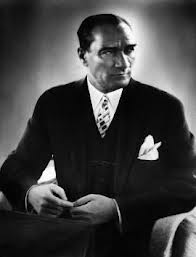
“There was never a man like Ataturk. He was a mighty torrent that flowed over barren soil and was lost.”
Falih Rıfkı Atay, The Atatürk I Knew, p. 252
But the Turk is both dignified and proud: he is also capable and talented. Such a nation would prefer to perish rather than subject itself to the life of a slave.
Therefore, Independence or Death!
This was the rallying cry of all those who honestly desired to save their country.
Let us suppose for a moment that in trying to accomplish this we had failed. What would have been the result?—why, slavery!
In that case, would not the consequence have been the same if we had submitted to the other proposals? Undoubtedly, it would; but with this difference, that a nation that defies death in its struggle for independence derives comfort from the thought that it had resolved to make every sacrifice compatible with human dignity. There is no doubt its position is more respected than would be that of a craven and degraded nation capable of surrendering itself to the yoke of slavery.
Mustafa Kemal Atatürk, The Great Speech (Nutuk) p. 10
